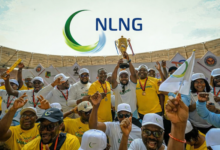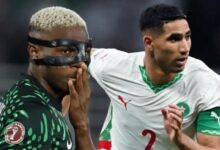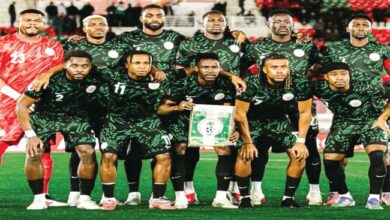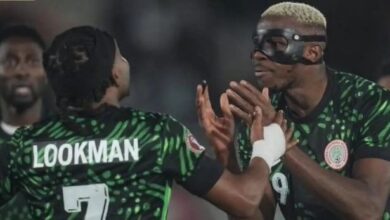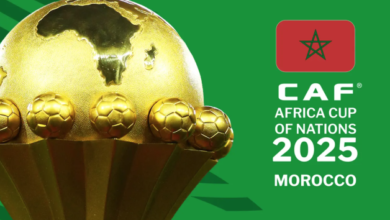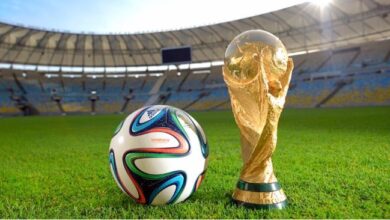Super Falcons Bag National Honours, $100K, and Homes for Historic 10th WAFCON Victory
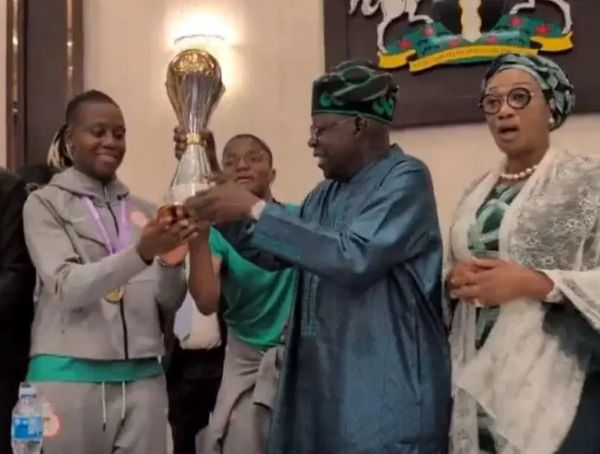
In a rousing celebration of resilience, excellence, and national pride, President Bola Ahmed Tinubu on Monday rolled out the red carpet for Nigeria’s Super Falcons at the State House, Abuja—rewarding the 10-time Women’s Africa Cup of Nations (WAFCON) champions with national honours, cash rewards, and new homes.
Each player of the triumphant squad received the national honour of Officer of the Order of the Niger (OON), a cash reward of $100,000 (₦ equivalent), and a three-bedroom apartment at the Renewed Hope Estate in the nation’s capital.
The technical crew of 11 also walked away with $50,000 each, alongside national honours and apartments—highlighting what many now call “the most generous sports reward package in Nigeria’s history.”
From Victory in Rabat to Honour in Abuja
The Falcons’ reward follows their historic 3–2 comeback victory against hosts Morocco in the WAFCON final—marking their 10th continental title and reinforcing their status as Africa’s most dominant women’s football team.
President Tinubu, joined by First Lady Oluremi Tinubu, ministers, and top sports officials, hailed the team for their “unity, courage, and discipline,” noting that their performance “lifted the spirit of an entire nation.”
“This victory transcends sports—it is a triumph of Nigerian resilience,” Tinubu declared. “You have become the pride of a grateful nation.”
More Than Just a Gesture: Institutional Recognition for Women in Sports
The gesture goes beyond symbolism—it reflects a renewed policy direction that recognises sports as a catalyst for national unity, youth empowerment, and economic development. Tinubu’s Renewed Hope Agenda is now increasingly seen as prioritising sports, not merely as recreation, but as a strategic pillar of Nigeria’s soft power and international visibility.
Gov. Abdulrahman Abdulrazaq, on behalf of the Nigerian Governors’ Forum, also announced an additional ₦10 million per player, further amplifying the wave of rewards.
Falcons Seek Deeper Institutional Support
Team captain Rasheedat Ajibade expressed gratitude on behalf of the team but appealed for sustained structural investment in women’s football, including access to world-class training facilities, medical care, and career support.
“This is a dream come true,” she said. “But our future success depends on institutional support. Let this not end as a one-off celebration.”
Super Falcons: Driving a Billion-Naira Sports Economy
The Falcons’ win—and the high-level state response—has reignited discussions on how women’s football can be a major pillar in Nigeria’s sports economy. Analysts say with proper investments, media rights, local league development, and corporate sponsorships, Nigeria’s female football assets could contribute billions to the national GDP.
Shehu Dikko, Chairman of the National Sports Commission, echoed this view, crediting Tinubu’s “Renewed Hope Sports Agenda” for reawakening investor interest and policy prioritisation in the sector.
“Sports can heal, unite, and drive growth. What we see today is not just reward but a repositioning of sports as a serious economic driver,” Dikko said.
What This Means for Nigeria’s Sports Development
Beyond the headlines, the Falcons’ victory and recognition reinforce five key signals for Nigeria’s sports ecosystem:
- Athletes can expect performance-linked rewards from the topmost levels of government.
- Female athletes are gaining long-overdue recognition and investment.
- Sports diplomacy is a soft-power tool for global influence.
- Public-private partnerships are key to sustaining momentum.
- Nigeria can export football talent and host top-tier tournaments if infrastructure keeps pace.
Final Word: A New Dawn for Nigerian Sports
As Nigeria looks ahead to the FIFA Women’s World Cup and Olympic qualifiers, stakeholders agree that sustained investment, policy consistency, and talent development at the grassroots are the next frontiers.
The Super Falcons have proven—once again—that Nigeria can dominate the world stage. With the right support, they may not just win more trophies—they may power Nigeria’s transition into a globally respected sporting and economic powerhouse.


